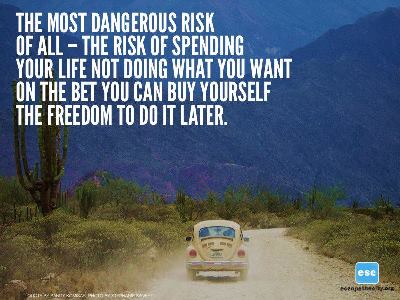One of the best definitions so far of Consulting is “the art of influencing people at their request. People want some kind of change – or fear some sort of change – so they seek consulting, in one form or the other” – Gerald M. Weinberg.

This probably means that a lot of ‘consultants’ probably are not consultants are per this definition – probably better defined by temporary support or project management support. Actual consulting is really about influence and change. On the other hand, many of us are actually consulting in our private or social life without knowing it.
Influencing people at their request requires 1) permission and 2) provocation and support.
Consultants, did you get permission? And then, are you using this permission effectively to provoke and induce change?











 Anyway, I found there an excellent career advice, and a new concept, the squiggle:
Anyway, I found there an excellent career advice, and a new concept, the squiggle: